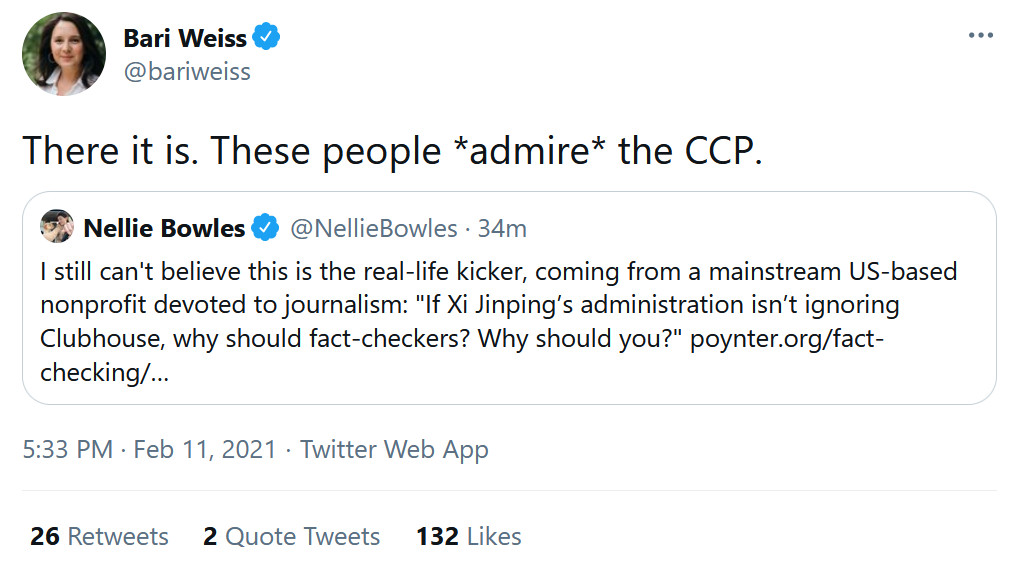THE LIVES OF OTHERS WAS NOT INTENDED AS A JOURNALISTIC HOW-TO GUIDE: “Factually: What will fact-checkers find on Clubhouse?”, asks an article at Poynter.org:
There is a new social media platform trending worldwide. It’s called Clubhouse and it brings together people like Tesla’s Elon Musk and Facebook’s Mark Zuckerberg. For the moment, it seems to be beyond the reach of the broader fact-checking community, but this should change soon.
I joined Clubhouse this week. And it was only possible because I own an iPhone. The hot new network only runs on iOS.
To be accepted, I also had to deploy an invitation code. Downloading the app isn’t enough. To be a Clubhouse user you must know the right people …
As reported by tech websites and popular newspapers, Clubhouse aims to be the most exclusive social media platform ever launched. It offers its users the opportunity to enter different chat rooms (clubs) and share live audio feeds — not text or images — with thousands of other people. Rooms are divided by topic and you can even schedule your participation by scrolling through what discussions will be up in the next hours.
Clubhouse was mentioned in the Sunday Glenn Greenwald article in which he noted that the New York Times’ hall monitor Taylor Lorenz falsely accused Netscape founder Marc Andreessen of using (gasp!) the word “retard:”
Lorenz lied. Andreessen never used that word. And rather than apologize and retract it, she justified her mistake by claiming it was a “male voice” that sounded like his, then locked her Twitter account as though she — rather than the person she falsely maligned — was the victim.
But the details of what happened are revealing. The discussion which Lorenz falsely described took place on a relatively new audio app called “Clubhouse,” an invitation-only platform intended to allow for private, free-ranging group conversations. It has become popular among Silicon Valley executives and various media personalities (I was invited onto the app a few months ago but never attended or participated in any discussions). But as CNBC noted this week, “as the app has grown, people of more diverse backgrounds have begun to join,” and it “has carved out a niche among Black users, who have innovated new ways for using it.” Its free-speech ethos has also made it increasingly popular in China as a means of avoiding repressive online constraints.
These private chats have often been infiltrated by journalists, sometimes by invitation and other times by deceit. These journalists attempt to monitor the discussions and then publish summaries. Often, the “reporting” consists of out-of-context statements designed to make the participants look bigoted, insensitive, or otherwise guilty of bad behavior. In other words, journalists, desperate for content, have flagged Clubhouse as a new frontier for their slimy work as voluntary hall monitors and speech police.
As Twitter use “PoliMath” adds, “The desire to hold discussions in Clubhouse ‘accountable’ is kind of insane It would be like demanding entry to someone’s house for a party and going around butting in on everyone’s conversation to make sure they don’t say something bad.”
Exit quote from the Poynter article: “On Monday, after a rare moment of cross-border dialogue between users from mainland China and others outside the country, Chinese censors moved in. If Xi Jinping’s administration isn’t ignoring Clubhouse, why should fact-checkers? Why should you?”

